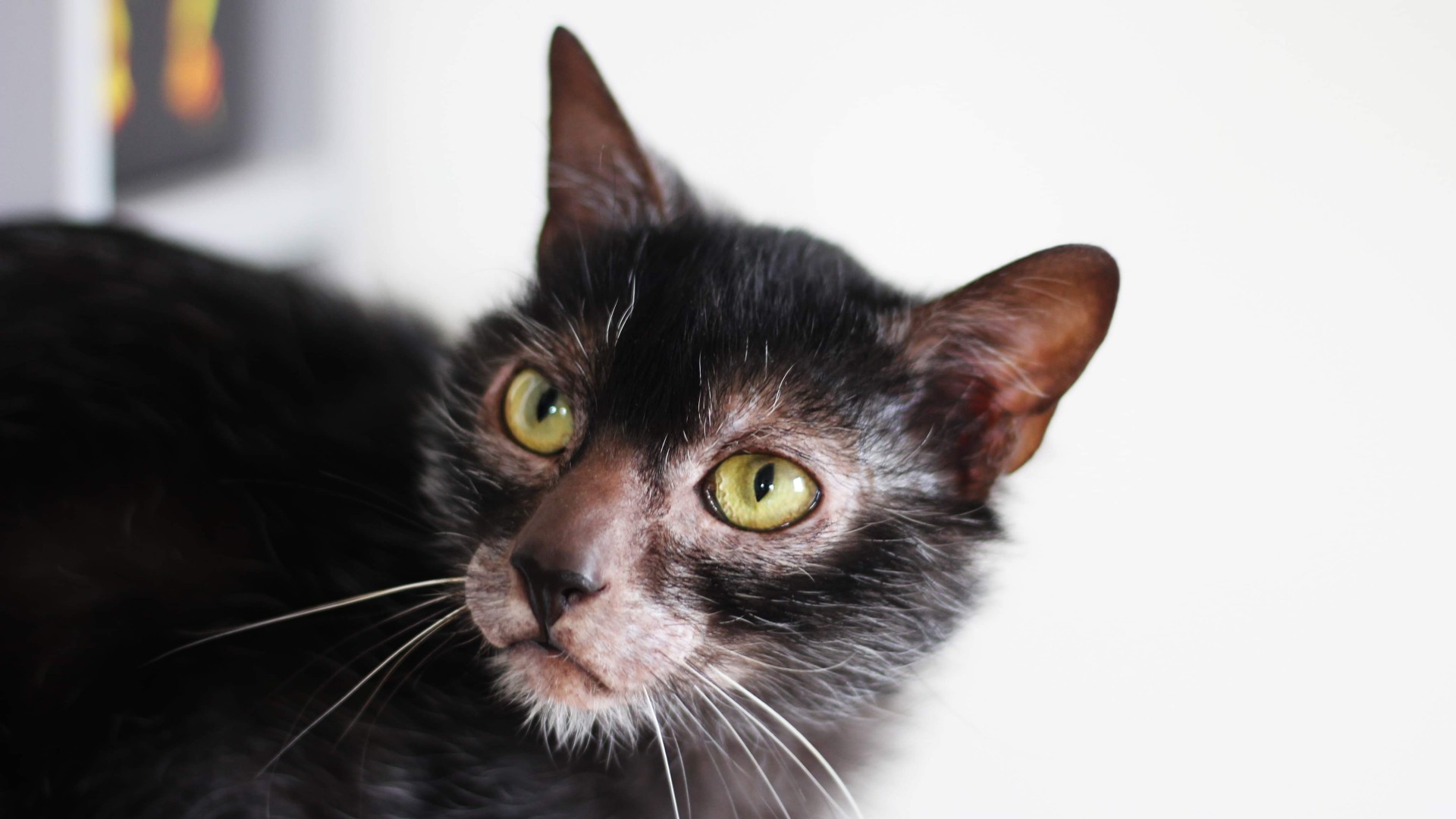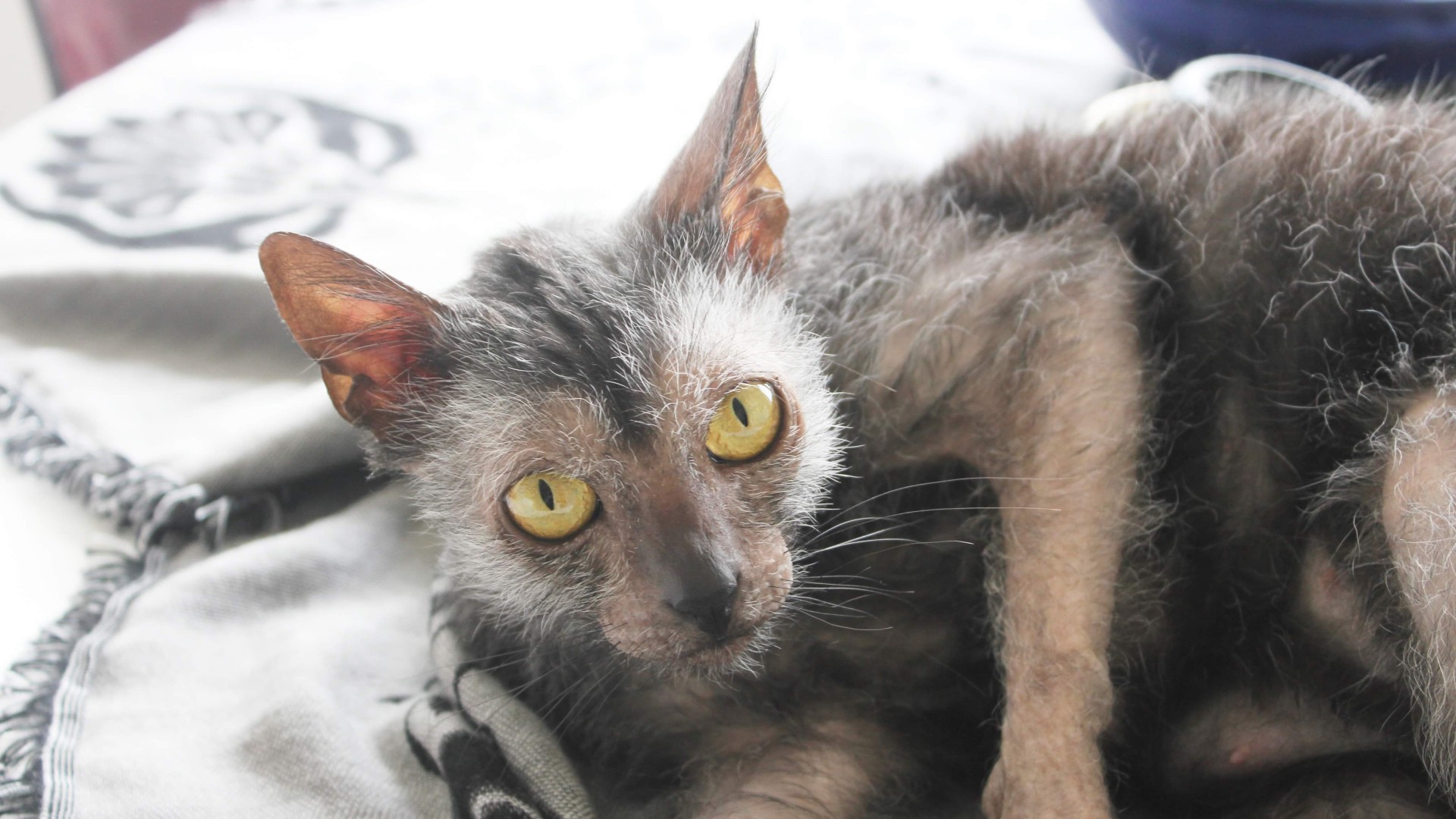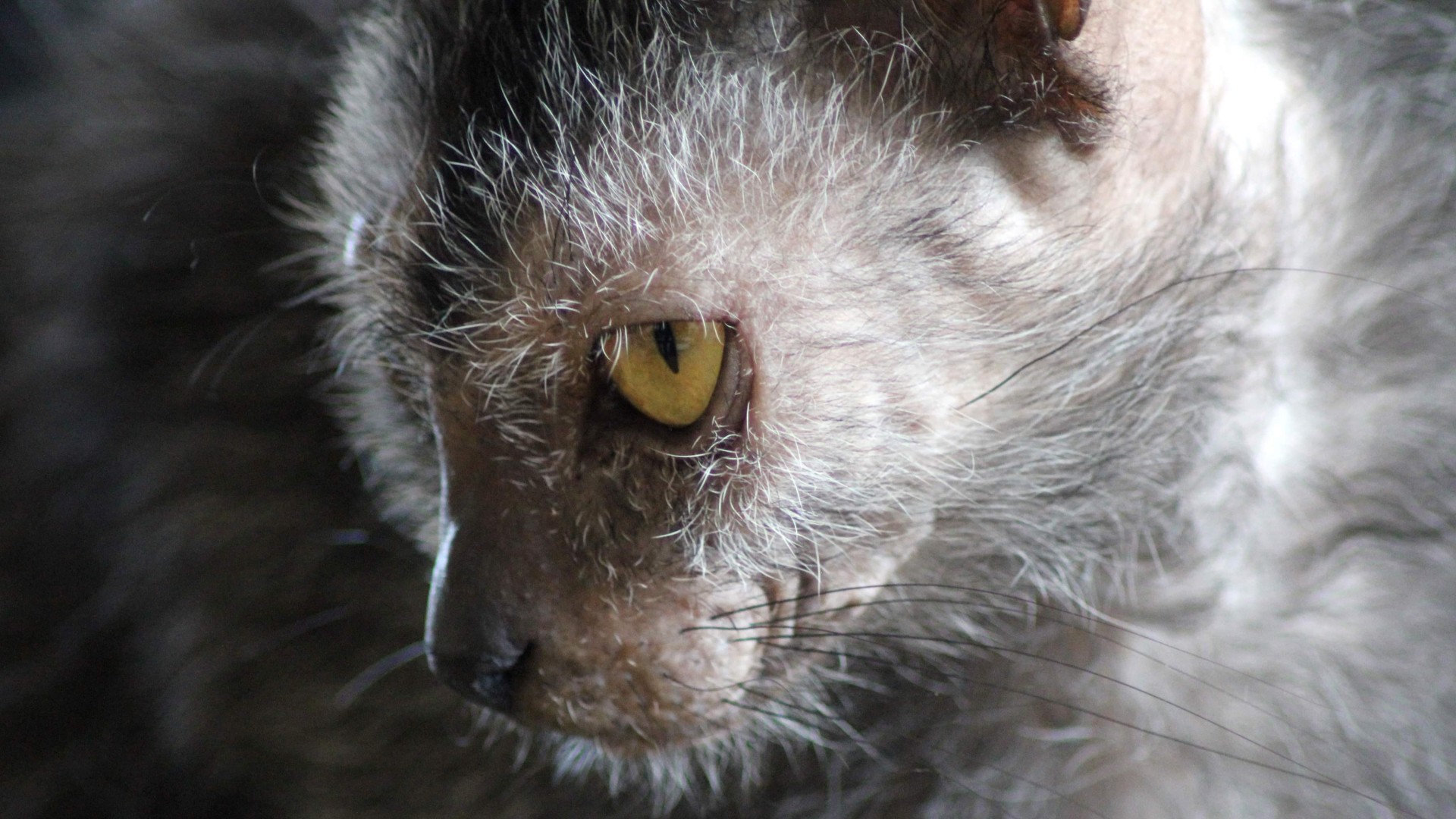What is a werewolf cat? Everything you need to know about the Lykoi breed
We've got all the werewolf cat facts and info you'll need

Get the best advice, tips and top tech for your beloved Pets
You are now subscribed
Your newsletter sign-up was successful
Werewolf cats (or Lykoi cats) are some of the most unusual looking cats. Not only are they the result of a genetic mutation that makes them look like werewolves, but they're also one of the friendliest cat breeds.
Lykoi have a striking appearance, with hairless spots around their eyes, muzzle, and chin, as well as partial hairlessness on their legs and paws. They may look like they're related to Sphynx cats, but it turns out they aren't! Lykoi are a very unique breed that have greatly increased in popularity within the last decade, so if you're curious about the famous werewolf cat, you've come to the right place. Lykoi are incredibly rare cats because of the generic mutation that created them, so you may not see many in person.
Werewolf cats are a fascinating breed that scientists are still learning about. They're strikingly adorable and actually act a bit like dogs, so their nickname is incredibly appropriate. Lykoi even means wolf in Greek! If you've seen a Lykoi cat on social media and are curious about the rare breed, we've got everything you need to know about the adorable werewolf cat right here. Read on for interesting facts and stats about the Lykoi.
- Best cat brush
- How often should I brush my cat?
- Best cat litter box: Get the best bathroom for your feline friend

Development of the breed
The Lykoi may look related to sphynx cats, but there are no genetic similarities between the two. Instead Lykoi cats are the result of a genetic mutation in feral cats, first appearing around 20 years ago in Tennessee, USA. In 2011, two unrelated litters of kittens were brought to the founders of the Lykoi breed (Johnny Gobble, Brittany Gobble, and Patti Thomas) by people who believed them to be sick.
The kittens had the now-telltale markers of the Lykoi breed: hairless areas around the face and legs. After extensive DNA testing to ensure they weren't sick, Johnny Gobble proved it was instead a genetic mutation by breeding one cat from each of the unrelated litters. He produced the first intentionally bred Lykoi. The Lykoi gene still appears in feral cat populations. According to ZME Science, however, the genetic mutation is recessive, so it's less likely to appear naturally.
Werewolf cats can be completely covered in hair or partially hairless, and some can lose all of their hair (although it will grow back).
Behavior

Lykoi cats tend to behave like dogs, making their name especially appropriate. Founder Johnny Gobble tells LiveScience.com that the Lykoi "do act like dogs in many [ways], though they are still cat." When Lykoi are together they act like a pack of pups, wagging their tails and chasing prey like a "bunch of dogs hunting something." Lykoi cats are an affectionate lap cat breed and are considered fairy easygoing - they get on well with other cats and other animals, as well. Expect a werewolf cat to follow you around the house demanding pets and attention. Overall, they are a friendly and fun breed who seem to be a fairly good pet for kids and families no matter the size.
Get the best advice, tips and top tech for your beloved Pets
Are Lykoi cats hypoallergenic?
Lykoi cats are not hypoallergenic. They are not related to the Sphynx in any way and are just genetically mutated domestic shorthairs, so they don't have any of the traits of traditionally hypoallergenic breeds. While they have very little hair, they do shed more than other domestic shorthair cats. If you have moderate to severe cat allergies, this isn't the cat for you.
Special care for hair/coat and shedding
According to the breed creator, Brittany Gobble, Lykoi cats do need a bit more grooming than your average domestic shorthair. Gobble details how they take care of their werewolf cats on LykoiKitten.com, walking you through the steps they take to ensure they stay clean and healthy. The less hair a Lykoi has, the more oils they will produce, so a Lykoi with a more "typical" cat coat will have to be bathed less.
Yes, bathing is likely a necessary part of having a Lykoi, but according to Gobble, some Lykoi love the water. Lykoi owners will also have to pay special attention to their cat's ears and nails, as their lack of an undercoat means they can't distribute oils away from those areas. As a result, oils will pool in the ears and in their nail beds, which looks like a sticky black material. You'll need to get a cat safe ear cleaner and paw wipes in order to take care of this oil buildup.
As we said earlier, Lykoi cats do shed more than regular domestic shorthair cats, so keep that in mind when considering one.
- Should you give a cat a flea bath?
- Do cats need baths? Everything you need to know
Adopting a werewolf cat
Werewolf cats are a fairly new breed, and the recessive trait that causes them means they're not very common. As such, it's nearly impossible to find a Lykoi cat in rescues - instead you'll need to shell out upwards of $2,000 to get one from a breeder. Gobble has reportedly not seen any evidence that bred Lykoi are less healthy than other mixed-bred domestic cats, but it is also very early to tell if the Lykoi are prone to any genetic health issues because of how new the breed is.
"We're trying to breed these cats for genetic variability and health before we focus on their looks," Gobble tells LiveScience. His breeding program currently involves taking rescued black cats from shelters and breeding them with Lykoi cats. "But I had a geneticist tell me once that if you want a gene breed to exist - in other words, if we want Lykoi to exist and not disappear - we have to breed them."
Maybe someday Lykoi cats will be more common, but as of right now they are expensive and rare.
